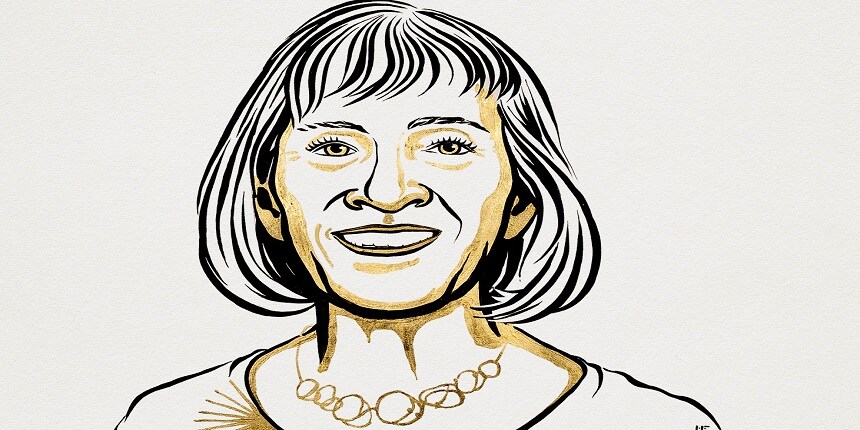Nobel economics prize goes to Harvard's Claudia Goldin for research on workplace gender gap
Press Trust of India | October 9, 2023 | 09:41 PM IST | 3 mins read
Harvard University professor Claudia Goldin's research helps explain why women are less likely than men to work and to earn less money at workplace.

STOCKHOLM: Claudia Goldin, a Harvard University professor, was awarded the Nobel economics prize on Monday for research that helps explain why women around the world are less likely than men to work and to earn less money when they do.
Fittingly, the announcement marked a small step toward closing a gender gap among Nobel laureates in economics: Out of 93 economics winners, Goldin is just the third woman to be awarded the prize and the first woman to be the sole winner in any year. Her award follows Nobel honours this year in medicine, physics, chemistry, literature and peace that were announced last week. And it follows last year's three winners in economics: Former Federal Reserve chair Ben Bernanke, Douglas W Diamond and Philip Dybvig for their research into bank failures that helped shape America's aggressive response to the 2007-2008 financial crisis.
Goldin's work in gender pay gap
Only about half the world's women have paid jobs, in contrast to 80% of men. Economists regard the gap as a wasted opportunity: Jobs have often failed to go to the most qualified people because women either weren't competing for work or weren't being properly considered. In addition, a persistent pay gap — women in advanced economies earn, on average, about 13% less than men — discourages women from pursuing jobs or continuing their education to qualify for more advanced job opportunities.
Goldin, 77, explored the reasons behind such disparities. Often, she found, they resulted from decisions that women made about their prospects in the job market and about their families' personal circumstances. Some women underestimated their employment opportunities. Others felt overwhelmed by responsibilities at home. “Women are now more educated than men," Goldin noted in an interview.
"They graduate from college at much higher rates than men. They do better in high school than men do. So why are there these differences? “And we realise that these differences, although some are found within the labour market, are really reflections of what happens within individuals' homes, and they're an interaction between what happens in the home and what happens in the labour market.”
Also Read | Norwegian playwright Jon Fosse wins Nobel Prize in Literature
Goldin's research methodology
To understand what was happening, Goldin pored through 200 years of labour market data. The task required a labourious process of sleuthing: Women's jobs frequently didn't appear in historical records. Women who worked on farms alongside their husbands or who laboured at home in cottage industries such as weaving, for example, often went uncounted. Goldin compiled new databases using such resources as industrial statistics and historical surveys on how people used their time. She discovered that official records dramatically undercounted how much work women were doing.
Also Read | Nobel Prize 2023 in physics awarded to Pierre Agostini, Ferenc Krausz and Anne L’Huillier
Correcting the record revealed some striking surprises. During the Industrial Revolution, as the US and European economies rapidly expanded and shifted from farms to factories, women's share of the workforce actually declined. Before Goldin's work advanced public understanding, researchers, unfamiliar with older data, generally assumed that growing economies drew more women into the job market. Progress in expanding female employment was slowed, in part, by women's own expectations and the experiences they had witnessed. Often, for example, they watched their own mothers stay home even after their children had grown up.
Follow us for the latest education news on colleges and universities, admission, courses, exams, research, education policies, study abroad and more..
To get in touch, write to us at news@careers360.com.